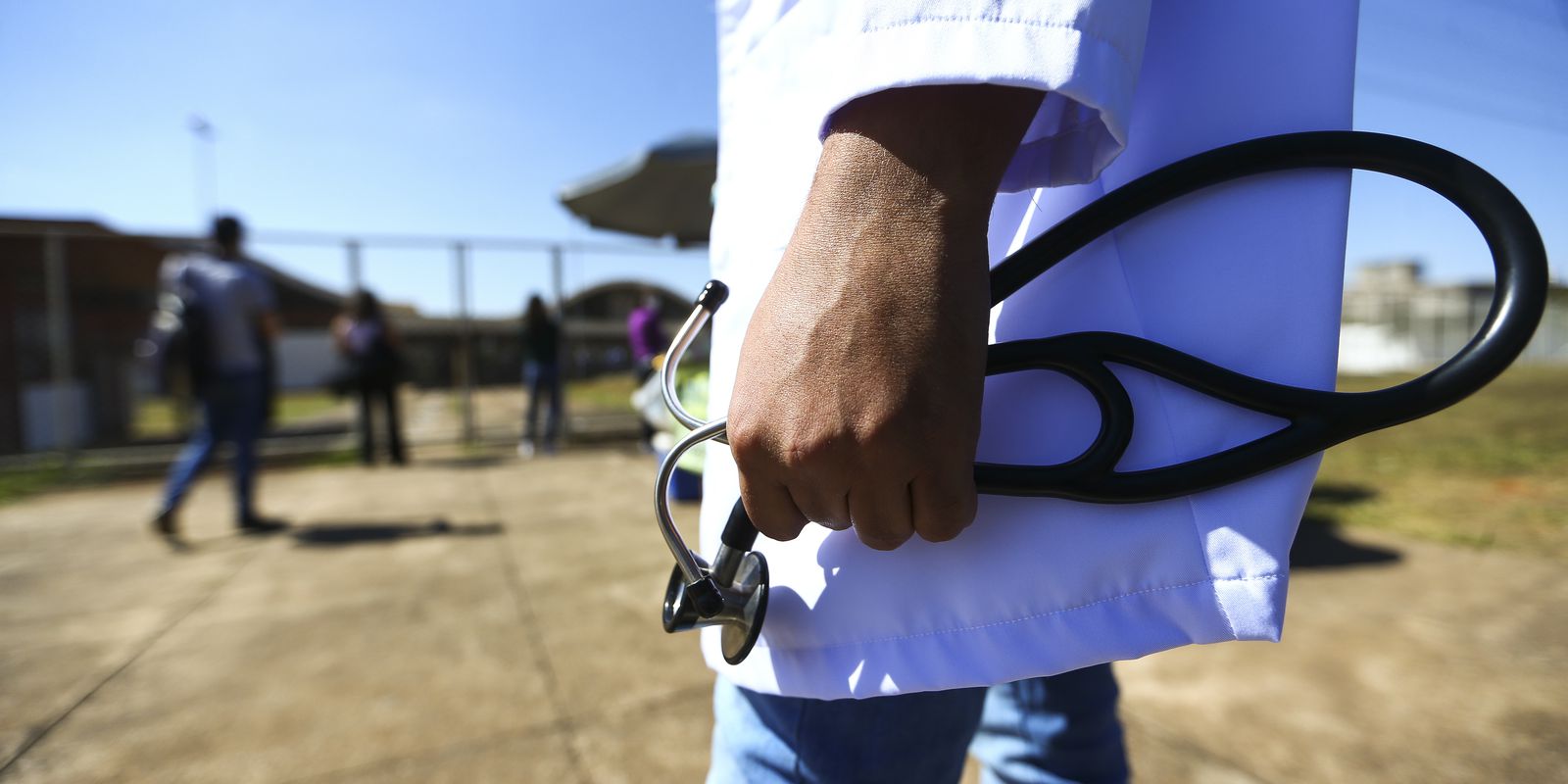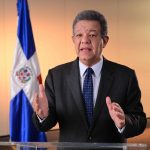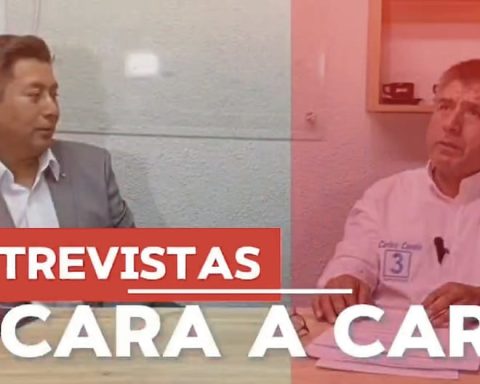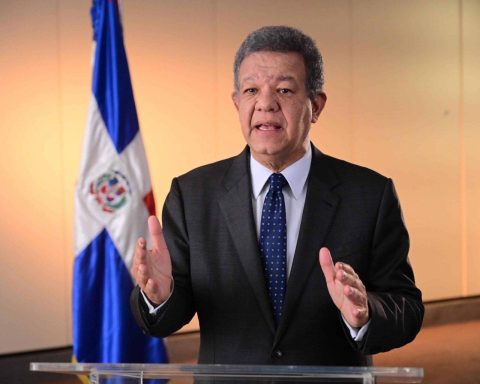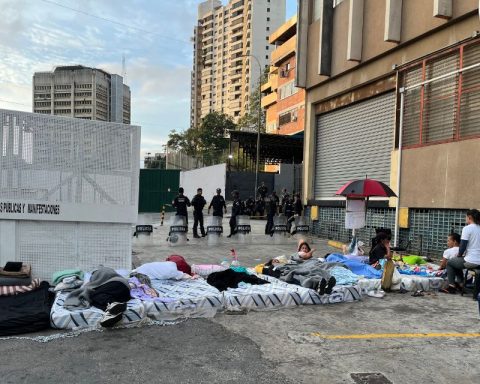With 6 thousand vacancies announced this week for the first noticethe Mais Médicos program bets on new incentives to attract Brazilian professionals and expand access to health care in the country, especially in regions of extreme poverty and lack of care.
For experts heard by Brazil Agency, the program is an important alternative for poor populations in remote areas to have guaranteed access to health care. Medical entities, however, criticize the possible hiring of Brazilian professionals trained abroad and foreigners without the revalidation of diplomas.
In all, 16,000 vacancies will be opened by the end of this year for professionals who will be responsible for primary care in thousands of Brazilian cities. The other 10,000 opportunities will be funded by the municipalities, but will guarantee lower costs to local governments, enable hiring, more agility in the replacement of professionals and permanence in these locations.
To try to guarantee the permanence of the professional in small municipalities, the government will pay a fixation incentive that can reach R$ 120 thousand for the doctor who stays for four years in vulnerable areas.
In the evaluation of doctor Deivisson Vianna, one of the vice-presidents of the Brazilian Association of Collective Health (Abrasco), health systems around the world have policies to guarantee the presence of doctors in remote areas.
“If there are corners that do not have medical care, all national health systems in the world that respect themselves have policies to guarantee the provision of vacancies in these regions. Countries like Canada and England also have an incentive policy for foreign doctors to guarantee health care, in case the local doctor does not want to go. because that’s it [garantir atenção à saúde] what matters,” he said.
“If there are places that Brazilians don’t want to go, what’s the problem with us encouraging the going of doctors with diplomas obtained outside the country, but with the supervision of the supervisors of Mais Médicos? There’s something that few people know: the program has a whole support network from universities. The professional does not stay loose.”
According to the announcement, Brazilian professionals and exchange students, Brazilians trained abroad or foreigners, who will continue to work with the Ministry of Health Register (RMS) can participate. Brazilian physicians trained in Brazil have preference in the selection.
“[Nessa edição do programa] it was not necessary to make an agreement with Cuba, for example. The number of foreign doctors will be smaller. In this relaunch, we are happy because the time of the program has been extended and it gives a lot of benefits for the doctor to settle in places that are difficult to provide”, evaluated Vianna.
In the current format, the time of participation in the program is four years, extendable for an equal period, when the doctor can do specialization and master’s degree. The grant is R$ 12,800, plus housing assistance. Brazilians and foreigners trained abroad who participate in the program will have a 50% discount on the diploma revalidation test, the Revalida, carried out by the Ministry of Education. In the last edition of Revalida, the registration fee was R$ 410.
A survey carried out by the Ministry of Health points out that 41% of program participants give up working in more remote locations to go in search of training and qualification. As an incentive, they will receive an additional 10% to 20% of the total sum of scholarships for the entire period of stay in the program, depending on the vulnerability of the municipality.
diplomas
Medical entities consider it essential that professionals with diplomas issued abroad have their knowledge revalidated in the country – which is not currently required by the Ministry of Health under the program.
In an interview with Brazil Agency, the president of the Brazilian Medical Association (AMB), César Eduardo Fernandes, admits that there are areas in the country known as care voids, where the supply of doctors is insufficient. He believes, however, that the problem cannot be solved by sending professionals to these locations, but also by paying attention to safety and the work environment.
“There is a lack of minimum conditions for the quality of life of professionals and their families. He is not attracted [por aquela localidade]. It’s not just about salary issues. Of course it matters. But the working conditions offered are also important. It’s no use just sending the doctor with a stethoscope around his neck. He has to be accompanied by a team. Physicians do not practice medicine alone.”
Fernandes claims that it is not possible to accept doctors without proven skills and abilities. “Bringing doctors to Brazil, whether they are Brazilians trained abroad or from other nationalities, without proving their skills is not enough. They need to revalidate their diplomas. Without that, it seems to me a temerity. Even if they are under the guardianship of an educational program. We cannot escape this debate.”
By means of a note, the Federal Council of Medicine (CFM) also criticized the new format of Mais Médicos. “Professional placement programs in difficult-to-hire areas must observe this legal requirement [da revalidação do diploma] to reduce the risks of exposure of the population to people with inconsistent training”. The entity argues that a better distribution of professionals across the country depends on adequate remuneration and continuing education programs.
“The board understands that there is a need to stimulate the adhesion of doctors graduated in Brazil to work in remote locations. However, the fact that this measure allows holders of medical degrees obtained abroad without proper revalidation to work in the country is not acceptable,” the note highlighted. “We understand that this care must be of quality so that the patient is not exposed to the risks of insecurity and ineffectiveness.”
Ministry of Health Registration
Professor at the Department of Politics, Management and Health at the Faculty of Public Health at the University of São Paulo (USP), Fernando Aith points out that physicians in the program with degrees from other countries receive certification to work at Mais Médicos.
“These professionals have a valid registration in Brazil, it’s just not the registration with the Federal Council of Medicine [CFM]. It will be a record of the Ministry of Health, which attests to a minimum proficiency quality of these professionals. It is worth mentioning that there is no risk to the population in the current modality. Revalida is important for validating diplomas obtained abroad, but it is heavily criticized for being excessive in the exam”, he says.
In an interview with Brazil AgencyAith stated that there is a contradiction in the requirement, on the part of the CFM, of an evaluation for the revalidation of diplomas from other countries without the obligation of exams for physicians trained in Brazil.
“The doctor who graduates in the country does not need any type of proof to start practicing his profession and we know that there are many universities with dubious qualities in the country”, he adds.
The supervision of the program is, according to the specialist, one of the conditions that allow doctors to practice without Revalida or foreign professionals in care gaps.
“The program was structured in a way that allows, through supervisors, the identification of any doctor who is not well trained, either to qualify him better, or to exclude him from the program in a timely manner before causing greater damage the population,” he says.
For the teacher, the program will play a fundamental role in mapping the working conditions of professionals. On the other hand, this cannot be pointed out as a reason why physicians do not work in peripheral regions. “These doctors will have more precarious conditions than those of the big centers, but it is not that there is a lack of minimum conditions. First, there is financial support for these doctors to settle in the city where they are going, with the structure to settle down with their families , if that’s the case”, he points out.
“Now, to say that an interior city does not have the minimum conditions is to give a banana to the Brazilian population that lives in these places. If there is no condition for a doctor to live, there is no minimum condition for a citizen to live. Of course, they will not have all the technologies, comfort and logistical-administrative support that they would have in a large center. But these are the shortcomings that the program will help us to better identify and supply over time”, he concludes.
Ministry
In a note, the Ministry of Health reported that the program “continues to prioritize the participation of professionals with CRM Brasil” as determined by law.
“Proof of this are the new provisional measure benefits focused on this professional profile. For locations where no physician with professional registration expresses interest in taking the vacancy, Brazilians trained abroad will be invited and, if vacancy persists, foreigners will be invited. The top priority is to guarantee access and assistance to the Brazilian population”, says the note.
According to the folder, the forecast is that by the end of 2023, 28,000 professionals will be working across the country, mainly in areas of extreme poverty and lack of care. “With this, more than 96 million Brazilians will have the guarantee of medical care in primary care services, the gateway to the SUS”, assures the folder.
The ministry also highlighted that among the main reasons for the turnover of professionals is the withdrawal of physicians seeking training. “In this sense, the strategy will increase the number of residency vacancies in priority areas for the SUS and offer incentives for those who take master’s and postgraduate courses in Primary Health Care and Family and Community Medicine”.
